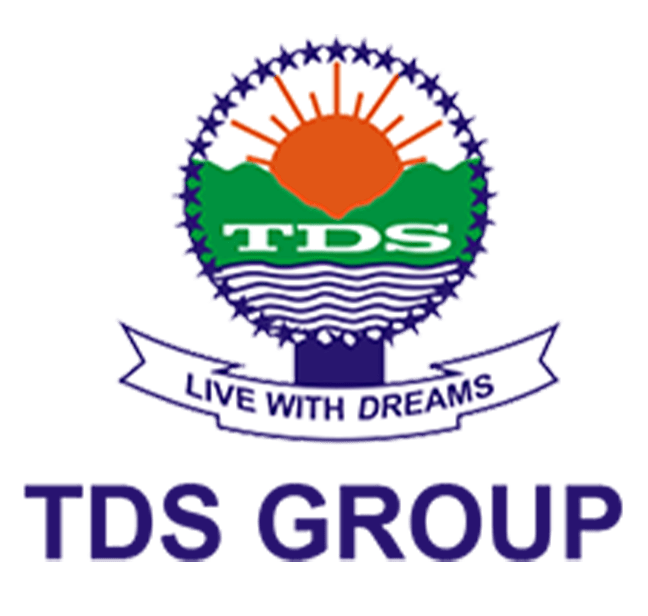Introduction
Get ready to boost your leadership with TDS Group’s new guide, “10 Effective Skills to Become a Better Leader.” Effective leadership is vital in our fast-changing world regardless of your career stage. TDS Group doesn’t just teach; we empower future leaders. We’ve highlighted ten critical skills in this blog that can elevate your leadership to new levels. So, join us at TDS Group, unlock your potential, and skyrocket your leadership skills.
What do you mean by Leadership exactly?
Leadership refers to inspiring and influencing others toward a common goal. It involves guiding and motivating individuals, fostering collaboration, making informed decisions, and taking responsibility for the outcomes. Effective Leadership encompasses traits such as vision, empathy, integrity, and adaptability, inspiring trust and maximizing the potential of a team.
What is the importance of solid leadership skills?
Strong leadership skills are crucial for the success of individuals, teams, and organizations. They provide direction, inspire confidence, and drive innovation. Influential Leaders foster a positive work culture, enhance productivity, and resolve conflicts. They promote growth, empower others, and navigate challenges, ultimately shaping a cohesive and high-performing environment.
Benefits of Leadership skills
1 . Collaboration and Teamwork
Leadership skills foster collaboration, promote effective communication, and build strong teams, enhancing synergy and collective success.
2. Adaptability and Resilience
Leaders with solid skills adapt to changing circumstances, navigate challenges, and inspire resilience in their team members, ensuring success even in the rarest days of adversity.
3. Decision-Making
Leadership skills involve making informed and timely decisions, balancing risks and rewards, and considering the team’s or organization’s best interests.
4. Problem-Solving
Leaders can analyze complex situations, identify obstacles, and develop practical solutions, leading to improved problem-solving capabilities within the team.
5. Employee Development
Influential leaders prioritize the growth and development of their team members, providing mentorship, guidance, and opportunities for learning and advancement.
6. Positive Work Culture
Leadership skills foster a positive work environment, promoting trust, open communication, and employee engagement.
7. Organizational Success
Leadership skills play a vital role in achieving organizational objectives, driving growth, and ensuring long-term success.
Way of becoming a good leader
Becoming a good leader involves a combination of self-development and adopting effective practices.
Here are some key ways to enhance Leadership Skills:
1. Self-Awareness
Understand your strengths, weaknesses, values, and beliefs. Reflect on your actions and seek feedback to identify areas for improvement.
2. Continuous Learning
Stay updated with industry trends, expand your knowledge, and seek personal and professional growth opportunities through books, courses, and networking.
3. Lead by Example
Demonstrate integrity, accountability, and ethical behavior. Inspire others through your actions, work ethic, and commitment to the shared vision.
4. Effective Communication
Develop strong communication skills to convey ideas, actively listen, and provide constructive feedback. Foster open dialogue and encourage diverse perspectives.
5. Empathy and Emotional Intelligence
Understand and empathize with the needs and emotions of team members. Show appreciation, build relationships, and create a supportive environment.
6. Delegate and Empower
Trust your team, delegate tasks, and provide them autonomy and resources. Foster a sense of ownership and encourage innovation.
7. Collaborative Decision-Making
Involve team members in the decision-making process. Seek input, encourage diverse viewpoints, and make informed decisions that align with the team’s goals.
8. Mentorship and Development
Support the growth of your team members by providing mentorship, coaching, and opportunities for skill development. Invest in their success.
9. Conflict Resolution
Address conflicts promptly and constructively. Mediate disputes, encourage open dialogue, and find win-win solutions that promote harmony within the team.
10. Adaptability and Resilience
Embrace change, be flexible, and adapt to new circumstances. Stay resilient in facing challenges, and inspire your team to do the same.
Remember, leadership is a journey of continuous improvement. Practice self-reflection, seek feedback, and adapt your approach to inspire and lead others effectively.
10 Effective Skills to Help You Become a Better Leader
Here are “10 Effective Skills to Help You Become a Better Leader,” a compelling guide designed to boost your leadership potential and navigate your path to success.
1. Effective Communication
Communication is one of the most essential skills that a leader must possess. Leaders need to communicate their vision, goals, and expectations to their team members clearly and effectively. This includes not only verbal communication but also written communication and body language. A good leader should be able to listen actively and respond appropriately to feedback and concerns.
2. Strategic Thinking
Good Leadership Qualities include strategic thinking and foresight. Leaders should foresee market trends, adjust strategies aptly, and make data-driven decisions. These abilities help identify potential opportunities and threats, setting the path for future success.
3. Emotional Intelligence
Good Leadership Skills include vital emotional intelligence, which is crucial for understanding and managing personal and team emotions. An effective leader empathizes with team members, fosters a positive environment, and maintains self-awareness. Their ability to manage emotions appropriately shapes a healthier and more productive workplace.
4. Decisiveness
Decisiveness is the Best Leadership Quality. Leaders must evaluate situations, gather pertinent information, and swiftly make well-informed decisions. Being capable of making tough calls confidently and promptly underpins effective leadership, enabling leaders to act efficiently in challenging circumstances.
5. Adaptability
Adaptability stands as one of the Good Leadership Qualities. A leader should embrace new ideas, learn from errors, and be ready to change course if required. Being able to pivot rapidly and effectively in response to changing circumstances is a testament to a leader’s adaptability, ensuring sustainable success.
6. Time Management
Leaders need to manage their time effectively and prioritize tasks. This involves setting goals, planning, and breaking down tasks into manageable steps. A good leader should be able to delegate tasks to others and manage their workload efficiently.
7. Conflict Resolution
Effective conflict resolution forms an integral part of Good Leadership Qualities. Leaders should listen to all perspectives, comprehend underlying issues, and find mutual solutions. Their ability to mediate conflicts resolves disputes and cultivates a positive work environment, promoting harmonious team dynamics.
8. Delegation
Proficient delegation is among Good Leadership Skills. It requires assigning tasks based on individual strengths and entrusting team members with their execution. An adept leader masterfully delegates while retaining control, balancing empowering team members, and maintaining leadership authority.
9. Continuous Learning
An Essential Leadership Skill is continuous learning and self-improvement. Leaders should regularly read, participate in workshops and conferences, and seek feedback. They must learn from past mistakes and apply those insights to future scenarios. This commitment to growth aids in honing their leadership acumen and achieving enduring success.
10. Visionary
Leaders must be visionaries and have a clear sense of purpose and direction. This involves setting goals and objectives for the team and inspiring them to work towards a common goal. A good leader should be able to communicate their vision effectively and motivate their team members to achieve it.
Conclusion
In conclusion, strong leadership skills are essential to individual and organizational success. TDS Group’s “10 Effective Skills to Become a Better Leader” guide offers a comprehensive approach to enhancing these skills. From fostering communication and strategic thinking to promoting adaptability and continuous learning, the guide empowers aspiring leaders. These critical leadership skills, once honed, not only help to navigate personal and professional challenges but also foster a positive work environment, driving both individual and collective growth.






